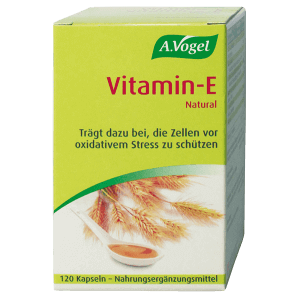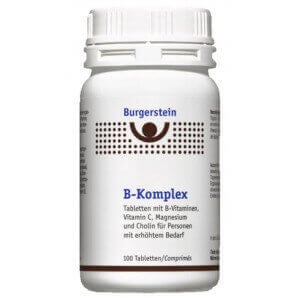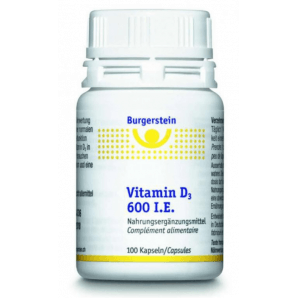-
nutrition
-
Food Supplement
- nutritional supplements by topic
- amino acids
- Minerals
- vitamin preparations
- Fatty acids
-
superfood supplements
- acerola
- aronia
- artichoke preparations
- ashwagandha
- astaxanthin
- brewer's yeast
- bee pollen
- camu camu
- chlorella
- spelled grass
- echinacea
- barley grass
- ginkgo
- grapefruit seed extract
- guarana
- green-lipped mussel
- ginger preparations
- garlic capsules
- turmeric Supplements
- maca
- moringa
- OPC
- roseroot
- saffron preparations
- spirulina
- préparations de la griffe du diable
- medicinal mushrooms
- frankincense preparations
- wheatgrass
-
Food
- healthy snacks
-
beverages
- soft drinks
- Coffee
- milk substitute
- whey drinks
- Juice
- syrup
-
tea
-
various types of tea
- nettle tea
- chai tea
- verbena tea
- fennel tea
- lady's mantle tea
- fruit tea
- green tea
- rosehip tea
- hemp tea
- hibiscus tea
- elderflower tea
- ginger tea
- camomile tea
- herbal tea
- lavender tea
- lime blossom tea
- dandelion tea
- mate tea leaves
- melissa tea
- mint tea
- oolong tea
- orange blossom tea
- marigold tea
- rooibos tea
- rosemary tea
- sage tea
- yarrow tea
- black tea
- licorice tea
- thyme tea
- verbena tea
- alkaline tea
- relaxation tea
- women tea
- love tea
- sleep tea
- pick-me-up tea
- tea selection boxes
- digestive tea
- christmas tea
- winter tea
-
various types of tea
- chewing gums & bonbons
- gluten Free Foods
- cooking & baking
- muesli
- sweets
- diet products
-
Food Supplement
-
sport
- muscle / joint pain
- sports nutrition
- Sport drinks
- fitness & gymnastics
- sports drinking bottles
- racket sports
- water sports & fun
-
personal care
- bath & shower
- fragrances
- facial skincare
- haircare
- hands & feet
- body & skincare
- intimate care
- make-up
- mouth & teeth
-
Health
- allergies & skin diseases
- bladder & prostate
- Diabetes
- blood circulation
- Withdrawal
- Cold & Flu
- Equipment & Fasttests
- hygiene & medical supplies
- Incontinence
- Love Life
- Stomach & Gut
- Restlessness & Sleep Disorders
- Wound care
-
Mother & Kids
- Pregnancy
- Breastfeeding
- baby
- kids
-
home use
- bathroom accessories
- office supplies
- electrical supplies
- garden & pests
- pillows & Blankets
- kitchen utensils
- lamps
- party items
- room fragrances
- cleaning products
- textiles
- pet supplies
- Sale
- Gifts
- New products
- Subscription
- Brands
-
4.9/5
1'030 Google-Reviews
Which vitamins are important in winter?
All vitamins are important - all year round. In winter, however, some of these active ingredients are particularly important to keep the immune system running.
One thing is certain: it doesn't work without vitamins. These nutrients are extremely important to the human organism, a truism. But why are vitamins so valuable? Quite simply because a lack of vitamins can lead to health problems. Body weight problems can be a result, constant weariness and fatigue, skin problems, muscle twitching and delayed reflexes in everyday life.
Vitamins in winter: preventing diseases
Probably the most common feature of missing vitamins, however, are common diseases. Whether flu viruses or cold germs: All pathogens have it particularly easy to overcome an immune system that has been weakened by a vitamin deficiency and to spread in the body. This applies all year round, but especially in winter.
When it's cold and dark outside, we naturally get little sunshine. This leads to a deficiency in vitamin D, a substance that the body produces itself in the sunny months and that strengthens bones and muscles. To be precise, it is not a vitamin, but a hormone that the body produces 75 percent or more itself when we are outside and the sun is shining. Vitamin D is contained in egg yolks and fish, but only in abundance - in winter it is advisable to take vitamin D as a food supplement.
The same applies to vitamin C. Apples, citrus fruits and red peppers are available in supermarkets at any time of the year. But to ensure that the body receives sufficient amounts of vitamin C - also known as ascorbic acid - in winter, you can also use vitamin C in tablet form.
There shouldn't be a lack of vitamins A, B1, C, D and E
If kale or beetroot doesn't necessarily suit your taste, then you can make sure to take vitamin A as a dietary supplement during the dark season. Vitamin A is important because the mucous membranes are strengthened and with them the immune system. In addition, the eyes are better able to convert the little light that reaches them in the perceived continuous twilight in winter into vision. And so that the organism can build up cells in the cold, the radical scavenger vitamin E is necessary. Fish, avocados and nuts contain a lot of vitamin E, as well as many dietary supplements.
You also need vitamin B1 so that the carbohydrates can be metabolized in the body. You should also take this active ingredient as a food supplement in winter to ensure the supply. B1 also has a very positive neuronal impact. This substance is particularly abundant in rice and legumes.
Women should consume 0.8 mg of vitamin A, 1 mg of vitamin B1, 100 mg of vitamin C, 5 micrograms of vitamin D and 12 mg of vitamin E daily in winter; Men 1 mg of vitamin A, 1.2 mg of vitamin B1, 100 mg of vitamin C, 5 micrograms of vitamin D and 14 mg of vitamin E
Related products
Related posts
-
Recipe: Protein Chocolate Pumpkin Box Cake (1-2 snack servings with Optimum Nutrition)
Posted in: Nutrition13.10.2020Today there is a mega-fine chocolate pumpkin box cake with high-quality protein products from Optimum Nutrition with...Read more -
 What are the symptoms of a vitamin D deficiency?
Are you unmotivated, tired, sleepless and listless in autumn and winter? Vitamin D deficiency could be a reason for...Read more
What are the symptoms of a vitamin D deficiency?
Are you unmotivated, tired, sleepless and listless in autumn and winter? Vitamin D deficiency could be a reason for...Read more -
 Hygiene and face masks - what types are there?
Posted in: Health20.10.2020Hygiene and protective masks have always been useful in hospitals, in medical practices and in care, Corona has made...Read more
Hygiene and face masks - what types are there?
Posted in: Health20.10.2020Hygiene and protective masks have always been useful in hospitals, in medical practices and in care, Corona has made...Read more -
 What are insomnia and what can you do about it?
Posted in: Health23.10.2020Sleeping seems like a simple thing. And yet many people suffer from insomnia, difficulty falling asleep and staying...Read more
What are insomnia and what can you do about it?
Posted in: Health23.10.2020Sleeping seems like a simple thing. And yet many people suffer from insomnia, difficulty falling asleep and staying...Read more -
.jpg) FFP1, FFP2, FFP3 - what are the differences between the masks?
Posted in: Health23.10.2020The FFP mask can now be seen more and more often in public, no longer just in nursing or in the medical field. Not...Read more
FFP1, FFP2, FFP3 - what are the differences between the masks?
Posted in: Health23.10.2020The FFP mask can now be seen more and more often in public, no longer just in nursing or in the medical field. Not...Read more







